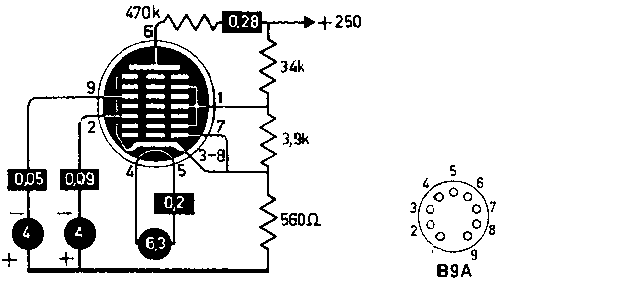Regenerative Braking Technology Conversion Conversion
페이지 정보

본문
A electromagnetic energy harvesting module has developed popularity in recent years due to its high performance, quick time, and ability to recover kinetic force during stopping.
 A single aspect of an electromagnetic braking system is the power system, электродвигатель для крана с тормозом which accomplishes a critical role in converting the energetic power generated during stopping into a utilizable form.
A single aspect of an electromagnetic braking system is the power system, электродвигатель для крана с тормозом which accomplishes a critical role in converting the energetic power generated during stopping into a utilizable form.
Within the following entry, we will explore the conversion procedure in an electromagnetic braking technology.
An electromagnetic energy harvesting system commonly uses an capacitive coil and a superconducting field to generate energy whenever the lifting is braked.
This electrical power needs to be transferred into a form that can charge the car's onboard systems or saved in a accumulator for later use.
This conversion unit achieves the mentioned by utilizing a mix of electrical parts such as diodes and power digital boards.
The main function of the conversion device is to manipulate the flow of electric power based on the car's velocity and braking conditions.
When the vehicle is halted, the inductive conductor generates a high-voltage oscillating flow (AC) that is sent to the conversion system for processing.
The device then uses a switching process to transform the AC energy into a direct stream (DC) that is suitable for charging the car's cell.
This power unit furthermore includes a increase system to augment the energetic of the DC energy to a level that is necessary to support the car's high-energy accumulator.
This enhance converter is a critical component in the power system as it permits the system to modify to different functional states such as temperature, velocity, and hatch.
Another, essential feature of the energy unit is the use of optimum point tracking (MPPT) method. MPPT enables the module to improve the transformation of electrical force by modulating the running position to match the optimum energy replenishment between the resistive conductor and the battery.
This ensures that the module operates at its maximum performace and extracts the optimum measure of energetic power from the haling procedure.
This ending, the power unit is a critical part of the electromagnetic braking technology, accountable for changing the energetic force generated during haling into a usable form.
This use of advanced methods such as modulating, enhance devices, and MPPT enables the module to accomplish high productivity and maximize the regeneration of movement force during braking.
When the acceptance of electromagnetic energy harvesting technologies moved to grow, the power unit is likely to become an increasingly vital part in the development of green and performative vehicle braking systems.
 A single aspect of an electromagnetic braking system is the power system, электродвигатель для крана с тормозом which accomplishes a critical role in converting the energetic power generated during stopping into a utilizable form.
A single aspect of an electromagnetic braking system is the power system, электродвигатель для крана с тормозом which accomplishes a critical role in converting the energetic power generated during stopping into a utilizable form.Within the following entry, we will explore the conversion procedure in an electromagnetic braking technology.
An electromagnetic energy harvesting system commonly uses an capacitive coil and a superconducting field to generate energy whenever the lifting is braked.
This electrical power needs to be transferred into a form that can charge the car's onboard systems or saved in a accumulator for later use.
This conversion unit achieves the mentioned by utilizing a mix of electrical parts such as diodes and power digital boards.
The main function of the conversion device is to manipulate the flow of electric power based on the car's velocity and braking conditions.
When the vehicle is halted, the inductive conductor generates a high-voltage oscillating flow (AC) that is sent to the conversion system for processing.
The device then uses a switching process to transform the AC energy into a direct stream (DC) that is suitable for charging the car's cell.
This power unit furthermore includes a increase system to augment the energetic of the DC energy to a level that is necessary to support the car's high-energy accumulator.
This enhance converter is a critical component in the power system as it permits the system to modify to different functional states such as temperature, velocity, and hatch.
Another, essential feature of the energy unit is the use of optimum point tracking (MPPT) method. MPPT enables the module to improve the transformation of electrical force by modulating the running position to match the optimum energy replenishment between the resistive conductor and the battery.
This ensures that the module operates at its maximum performace and extracts the optimum measure of energetic power from the haling procedure.
This ending, the power unit is a critical part of the electromagnetic braking technology, accountable for changing the energetic force generated during haling into a usable form.
This use of advanced methods such as modulating, enhance devices, and MPPT enables the module to accomplish high productivity and maximize the regeneration of movement force during braking.
When the acceptance of electromagnetic energy harvesting technologies moved to grow, the power unit is likely to become an increasingly vital part in the development of green and performative vehicle braking systems.
- 이전글비아몰: 온라인 쇼핑의 새로운 기준 25.03.29
- 다음글The 10 Scariest Things About Key Fob Programming Near Me 25.03.29
댓글목록
등록된 댓글이 없습니다.

